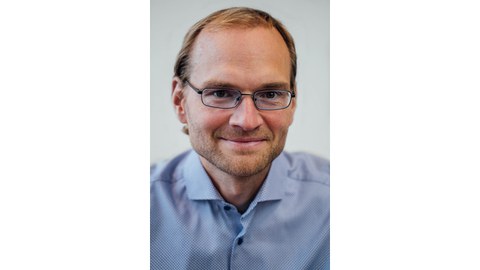Oct 30, 2020
BIOTEC welcomes Professor Henrik Bringmann and his research group

Professor Henrik Bringmann
Henrik Bringmann starts as a Professor at the BIOTEC, TU Dresden on the 1st of November. His group “Cellular Circuits and Systems” focuses on the molecular mechanisms behind sleep.
Sleep is essential for animal and human life. It is surprising then how little is known about the molecular mechanisms underlying sleep. With sleep disorders being increasingly common in industrialized societies and leading to great medical and economic burden, it is crucial to deepen our understanding of sleep to develop new treatments. Professor Bringmann and his research group want to understand the sleep mechanisms and sleep functions that promote health and well-being. Their research focuses on the sleep of mice and the nematode C. elegans. “C. elegans is the simplest animal model that sleeps. Therefore it is the easiest and most accessible for research. However, human sleep is more complex than sleep in C. elegans. Mice sleep in ways more similar to us and therefore we also investigate sleep mechanisms in mice. This way we can better translate our findings going from C. elegans to mice and then, potentially, to humans,” explains Professor Bringmann.
For Professor Bringmann moving to Dresden is actually a comeback. He completed his doctorate studies at the Max Planck Institute for Cell Biology and Genetics in Dresden in 2007. He then moved to the MRC Laboratory of Molecular Biology (LMB) in Cambridge, UK for postdoctoral research. In 2009 he established his research group at the Max Planck Institute for Biophysical Chemistry in Göttingen. During nearly a decade of research in Göttingen, the Bringmann group identified a key sleep neuron and key sleep genes in C. elegans. The group showed that these sleep genes also control sleep in mice and therefore are likely to do so for us, humans. In 2018 Dr. Bringmann was appointed Professor of Animal Physiology at the University of Marburg. During the time in Marburg, his group found a mechanism through which an EGFR signaling pathway increases sleep following stress as well as a neuronal circuit that switches on sleep when the animal is tired.
Funded by the ERC Starting Grant SLEEPCONTROL and the DFG, Professor Bringmann and his five group members are looking forward to becoming part of the BIOTEC and the greater family of the Center for Molecular and Cellular Bioengineering (CMCB) at the TU Dresden.
